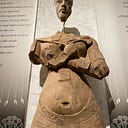Understanding the Pain Behind the Phrases: “ACAB” and “Men Are Trash”
Every social movement, every protest, every outcry for change is born from a place of pain, frustration, or injustice. This is true for the phrases “ACAB” and “Men Are Trash,” which have surfaced in recent years as vocal expressions of discontent and demand for systemic change. They are controversial, broad, and some argue, harmful in their generalizations. However, to dismiss them outright is to ignore the valid experiences and emotions that have led to their creation.
“ACAB” (All Cops Are Bastards)
The phrase “ACAB” has its roots in longstanding criticisms of policing and law enforcement agencies, particularly in the United States. For those who use this term, it’s often less about the individuals who wear the uniform and more about the institution they represent.
For many people, particularly those in marginalized communities, interactions with law enforcement have been marked by fear, hostility, and violence rather than protection and safety. The stories of police brutality, wrongful deaths, racial profiling, and lack of accountability have left many feeling disillusioned and distrustful.
When someone says “ACAB,” they are expressing a deep-seated frustration with a system they see as fundamentally flawed. They are challenging the notion of policing as it currently exists and demanding a reevaluation of its practices, accountability, and role in society.
“Men Are Trash”
The phrase “Men Are Trash” is a cry of frustration often heard in discussions about sexism, misogyny, and the ongoing struggle for gender equality. It’s important to clarify upfront that this does not mean every individual man is “trash.” Instead, it’s a critique of patriarchal systems and toxic masculinity that harm not just women, but men as well.
For many women and other marginalized genders, experiences of sexism, harassment, and gender-based violence are all too common. These experiences, often perpetuated by men, lead to a sense of fear, anger, and disillusionment.
When someone says “Men Are Trash,” they are articulating a frustration with a system that seems to perpetually excuse harmful behaviors, that places the onus on them to prevent their own victimization rather than teaching men not to victimize. They are demanding a society where they are respected, valued, and safe.
Navigating the Dialogue
In both instances, it’s crucial to remember that these phrases are not about demonizing all individuals within a group but are rallying cries against perceived systemic injustices. They reflect deep pain and a strong desire for change.
In conclusion, if we aim to address the issues that birthed the phrases “ACAB” and “Men Are Trash,” we must move beyond the phrases themselves and delve into the systemic issues they represent. It’s only by truly listening to one another’s experiences, acknowledging the validity of their pain, and working together that we can hope to bring about meaningful change.
